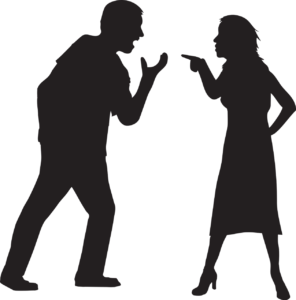Here in Toronto, I’ve been following the news about Jian Ghomeshi. He was a very popular TV and radio personality, fired by the CBC one year ago in a cloud of allegations of inappropriate behaviour toward a number of women he worked with and dated.
According to a CTV News report, Mr. Ghomeshi is headed to trial, in February, 2016, charged with four counts of sexual assault and one count of “overcoming resistance by choking.” He has pleaded “Not guilty” to all counts.
I’ve also been following the unfolding story of Bill Cosby, who, in the past several months, has been accused by over 40 women of drugging and sexually assaulting them, going as far back as 1967. So far, he hasn’t been criminally charged for any of these allegations, and he denies all the claims.
I don’t know what’s going to happen to Mr. Ghomeshi, or for that matter, to Mr. Cosby, but their stories are bringing to light an important phenomenon: society’s shockingly negative attitude toward women who accuse men of sexual assault.
I recently read an article by Erin Gloria Ryan in Jezebel, who wrote about Carla Ciccone, a woman who’d written an It Happened to Me post on XOJane last year about “an anonymous Canadian radio personality who acted like a creep on their date.” When “commenters quickly pointed to Ghomeshi,” she was accused “of being a liar, a drama queen, a whiner.”
This reaction is typical for women who speak out about their (alleged) experiences of sexual assault.
In a February 2015 Reuters article by Jeff Herman, an attorney for victims of sexual abuse, the author discusses what happens to women who accuse powerful or famous men of sexual assault.
He says: “Holding powerful men to account is rife with challenges.” The scales of justice are tipped in favor of the powerful before a case even reaches the courtroom.”
He goes on to say: “The public almost always sides with celebrity, and social media often unleashes an Internet-fueled public backlash, debilitating victims once they do come forward.”
He quotes CNN host and attorney Nancy Grace as saying, with regard to the Bill Cosby case: “[E]very time another woman comes forward, everybody says…What’s in it for her?”
In a recent article in The Wrap, by Matt Donnelly, I read that three of Mr. Cosby’s accusers have launched a libel case against him.
These women are unable to pursue their allegations of sexual assault in court due to the statute of limitations, but a Massachusetts judge is allowing them to move forward with their libel suit, for statements in the media by Mr. Cosby’s representatives that their claims were “fabricated” and “absurd.”
This is a very interesting turn of events, as it will publicize the disturbing but all too common phenomenon of women having their reputations damaged by the hostile responses to their claims of sexual assault.
Even Jay Leno, at a Q&A session at the NAPTE conference in Miami, Florida this past January, 2015, had something to say in defense of the women accusers of Mr. Cosby: “I don’t know why it’s so hard to believe women. You go to Saudi Arabia and you need two women to testify against a man. Here you need 25.”
Well, apparently, here you need over 40 women for us to consider that their claims might possibly have some credibility.
While it’s true that in the case of any type of accusation, there are going to be some that are spurious, something else must account for the overwhelmingly negative attitudes toward women who make public claims of sexual assault.
In his Reuters article, Jeff Herman says that “victims can do very little to protect their public image, as the men they accuse of abuse often have… high-priced attorneys, and image consultants who can simultaneously airbrush their public persona, while smearing the reputations of the women who dare to speak out against them.”
He says: “Motivations of accusers, rather than the accused, are questioned, and allegations of ‘money grabs’ are made.” He gives the example of a Florida State University quarterback who was accused of raping a fellow student, and how the public questioned the woman’s credibility and vigorously defended the athlete, “who has not been charged with a crime related to the accusations.”
It reminds me of the bad old days, when women wouldn’t go to the police when they’d been raped, because it was common practice for defense attorneys to smear their reputations in court and do their best to make it seem like the women “had it coming,” or that, in fact, the sex was consensual.
Here we are in 2015, and women who go public to accuse men of sexual assault end up being doubly attacked. First, they must deal with the physical and emotional trauma related to their experiences of assault, and second, they must contend with the negative reactions of the public and the ensuing damage to their reputations.
It’s 2015. Rape culture is alive and well. It seems like we women haven’t come such a long way after all, have we?
Sign up here for my free biweekly wellness newsletter that brings you fresh, thought-provoking content.
Subscribe to my YouTube Channel to watch my series Moving into Autumn with Good Self-Care, where you’ll learn simple tips for taking the best care of yourself and your loved ones this fall season.
Tune in to my Ruthless Compassion Podcast where I go in-depth about topics like mental health, trauma, and loneliness.


